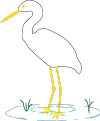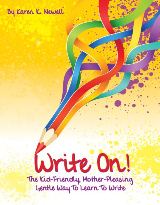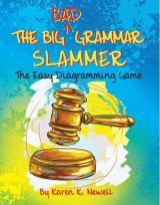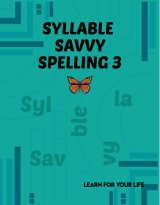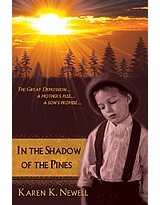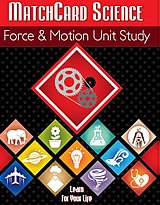Bruce McIntyre Drawing Books
Bruce McIntyre Drawing Books teach the 7 Laws of Perspective.
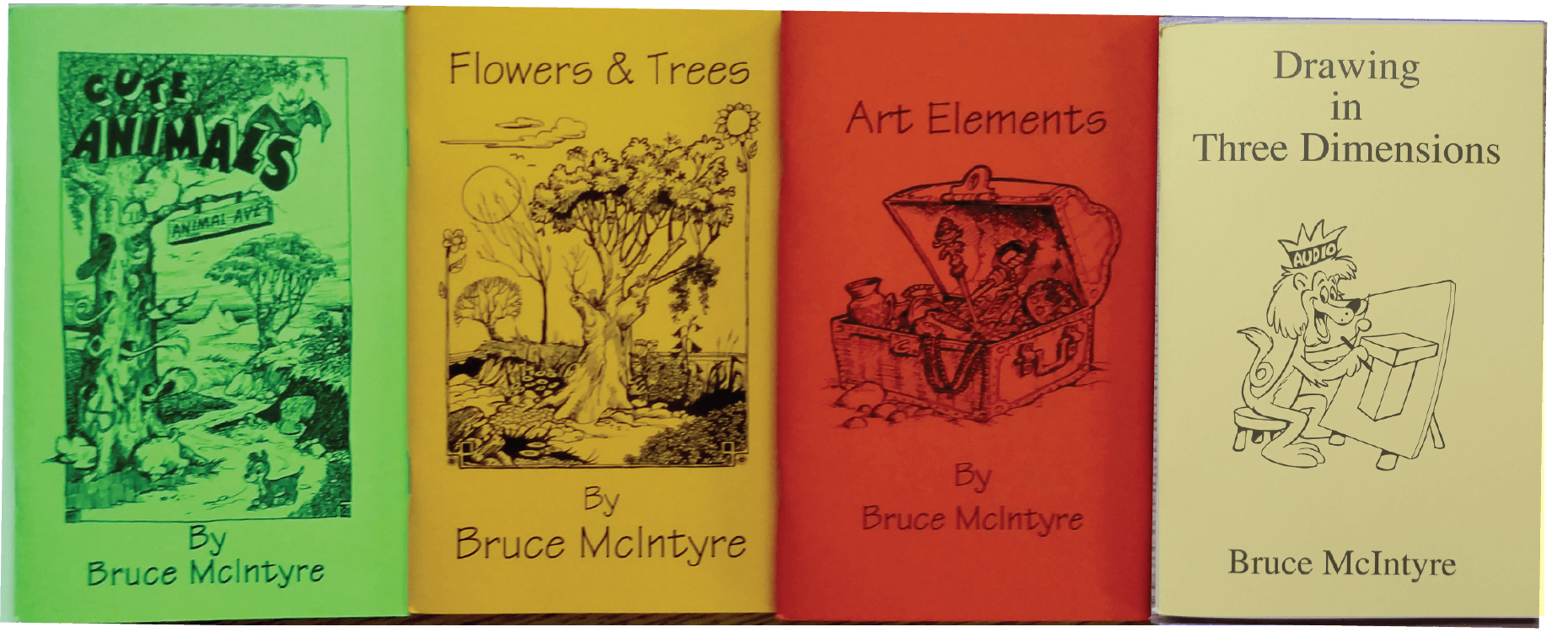
Set of 4 Books
$57.99
See below to buy individual titles.
Drawing Textbook: Year One
First Book In The Series
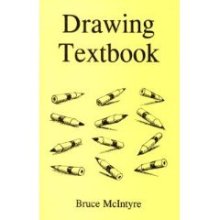
7 Laws of Perspective
Step-by-step Mr. McIntyre guides students from simple line drawings to detailed city-scapes. Through these activities the following seven laws of perspective are taught and reviewed.These laws at the heart of the program include:
- Surface - subjects closer to the viewer are lower on the page
- Size - closer subjects are larger than similar sized objects
- Surface lines - demonstrate curvature
- Overlapping - closer items are in front of other items
- Shading - shows depth and volume
- Density - greater detail in subjects closer
- Foreshortening - distorting shapes like circles and squares to demonstrate perspective
Once the 37 weekly lessons (with 6 drawings in each) are completed, what does the student do next?

Year Two of McIntyre's Audio Visual Drawing Program

- Cute Animals
- Flowers and Trees
- Art Elements
- Drawing in Three Dimensions
Unlike The Drawing Textbook, these books do not have six small objects that students practice drawing. Instead, each lesson has one larger object or theme. Nor is it expected that they repeat each lesson for a week. Instead, each lesson can be done once and then move to the next. (Of course, nothing will prevent anyone from lingering on any lesson they desire to practice longer.)
Cute Animals
20 Lessons
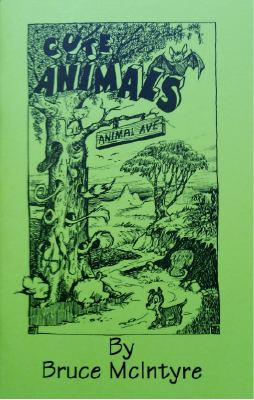
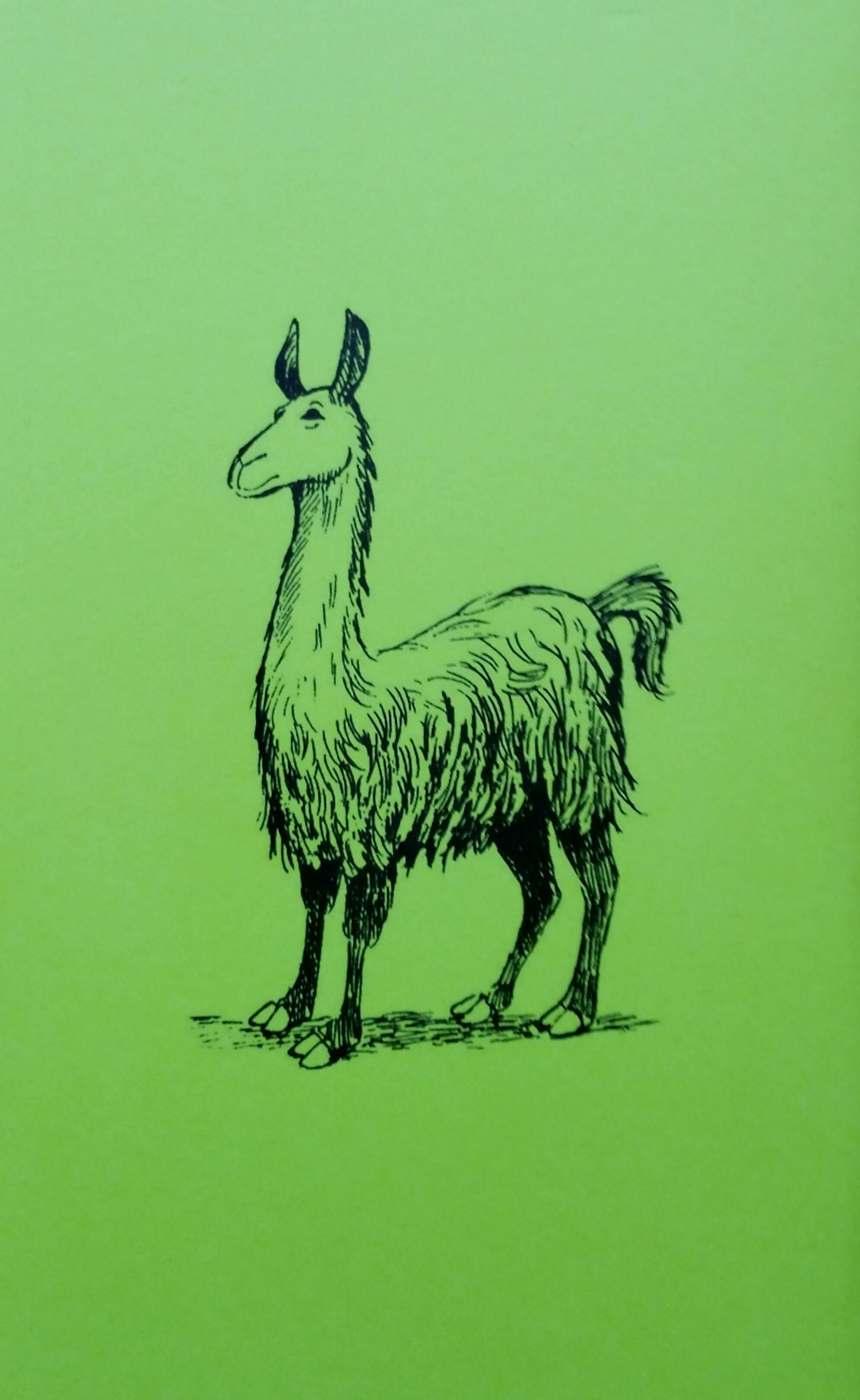
Front & Back Covers of Cute Animals
$15.25
So what does the book Cute Animals offer the student? You can see from the front and back covesr they will practice drawing animals.
This book does more than show students how to copy the shape of animals (though it does do that.) It continues to reinforce the 7 Laws of Perspective with the sketches.
Notice the pictures on the covers. These laws of perspective are reinforced with the student:
- Surface - the animal closest to you is toward the bottom of the page
- Size - the closer ear is larger
- Overlapping - the overlapping of the front leg over the back leg is shown with other animal pictures
- Surface lines - The hair on the llama gives the visual cue that his body is rounded
- Shading - the under parts of the body are darker
- Density - greater detail in shading on the front of the llama (as well as the animals closer to the viewer on the front cover.)
- Foreshortening - Foreshortened circles are used on heads, bills, and shadows beneath animals.
- Direction - the llama is facing direction 1. (Note the pencils on The Drawing Textbook cover.)
Flowers and Trees
30 Lessons
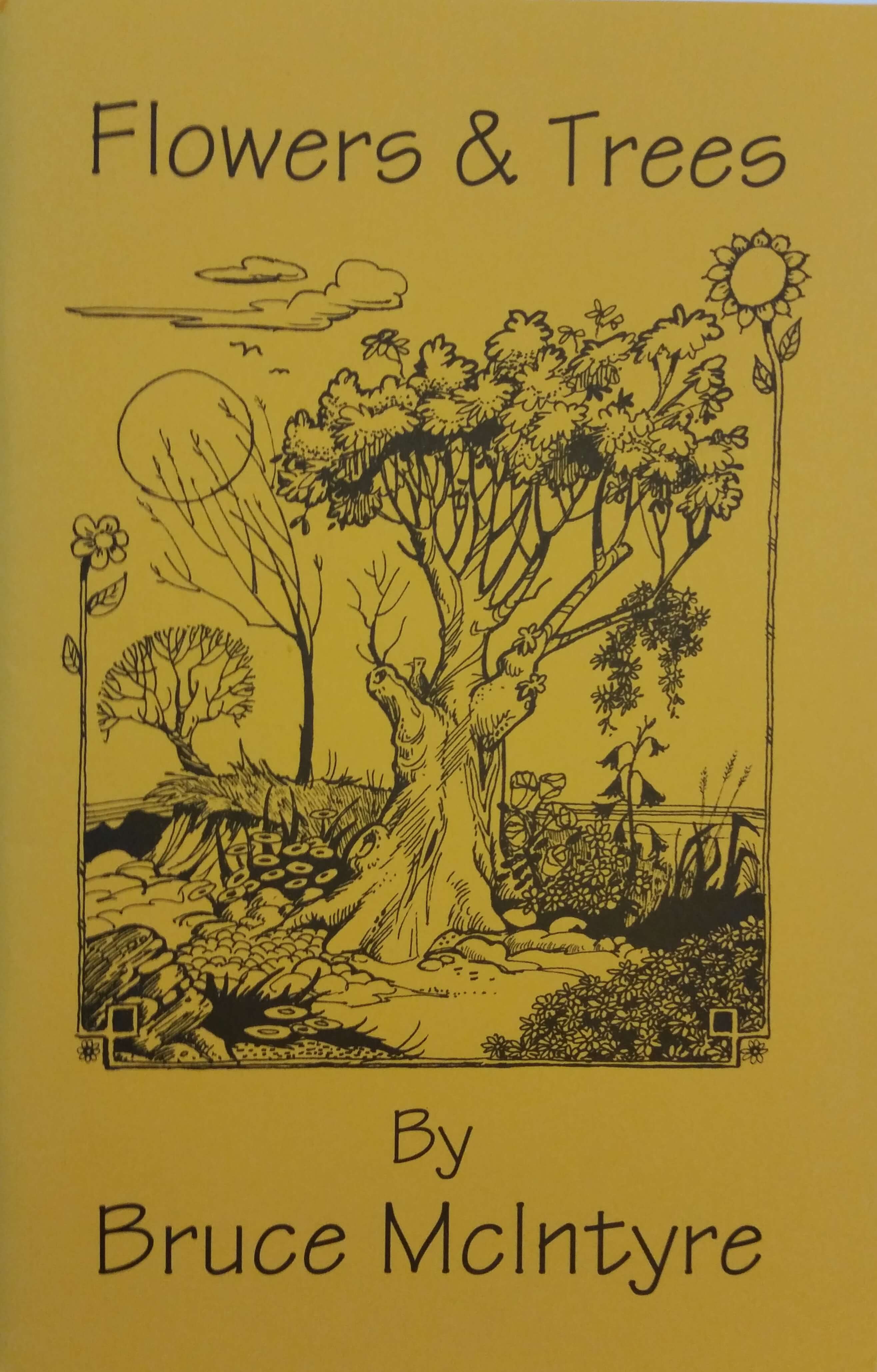

Front & Back Covers of Flowers and Trees
$15.25
As you can see from the front and back covers, these skills can be used to artistically draw a plant (like the tulips on the back cover) or to provide scenery for a larger picture (like the front cover.)
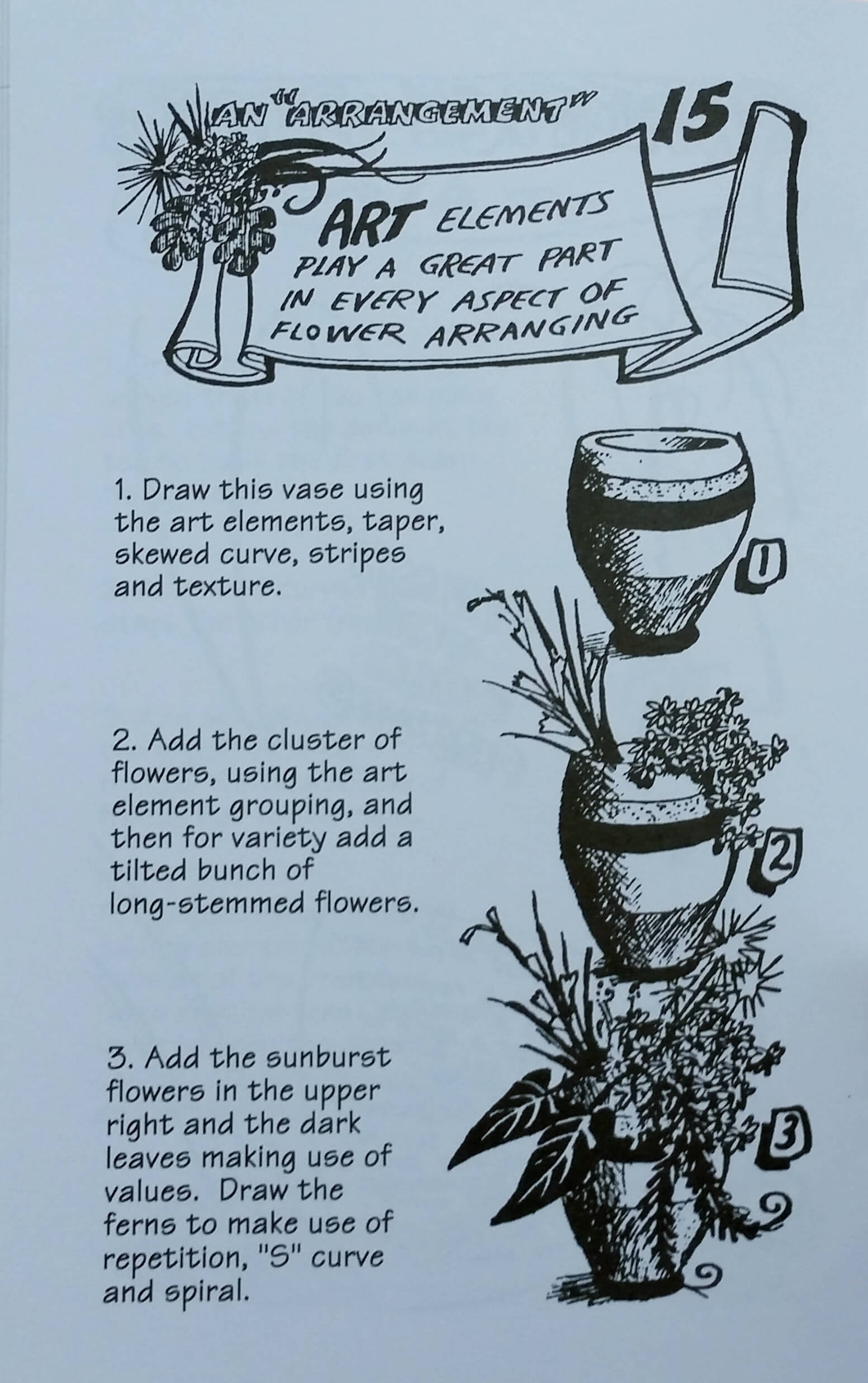
Art Elements
60 Lessons
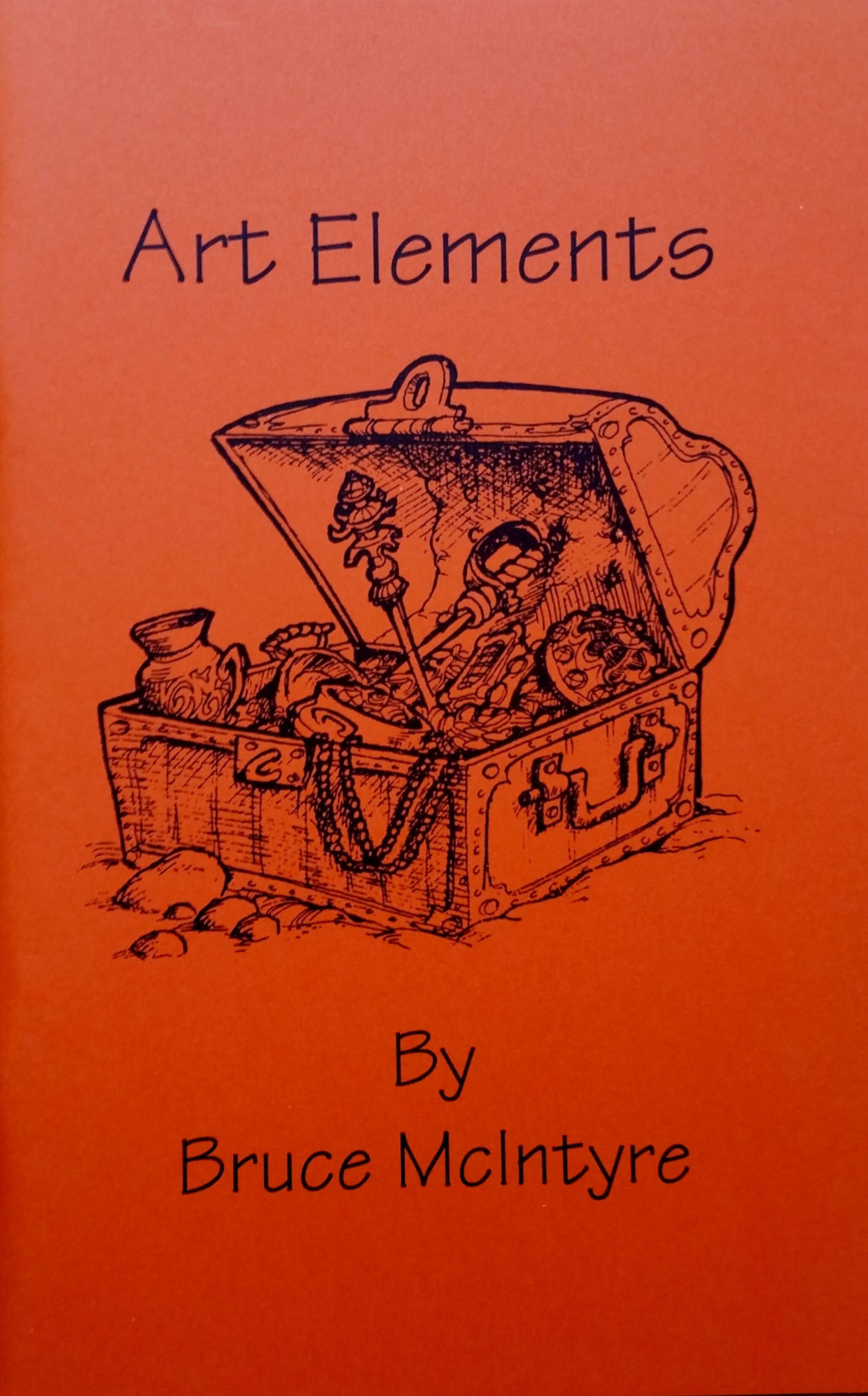
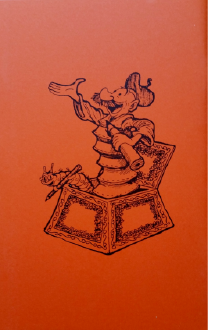
Front & Back Covers of Art Elements
$15.25
This provides 60 additional lessons applying other helpful tips and techniques. A sampling of these include:
- Tapering
- Natural Patterns
- Spirals
- Grouping
- Stripes
- Tilt
- Twist
- S Curve
- Drape, Droop, Drip and Drop
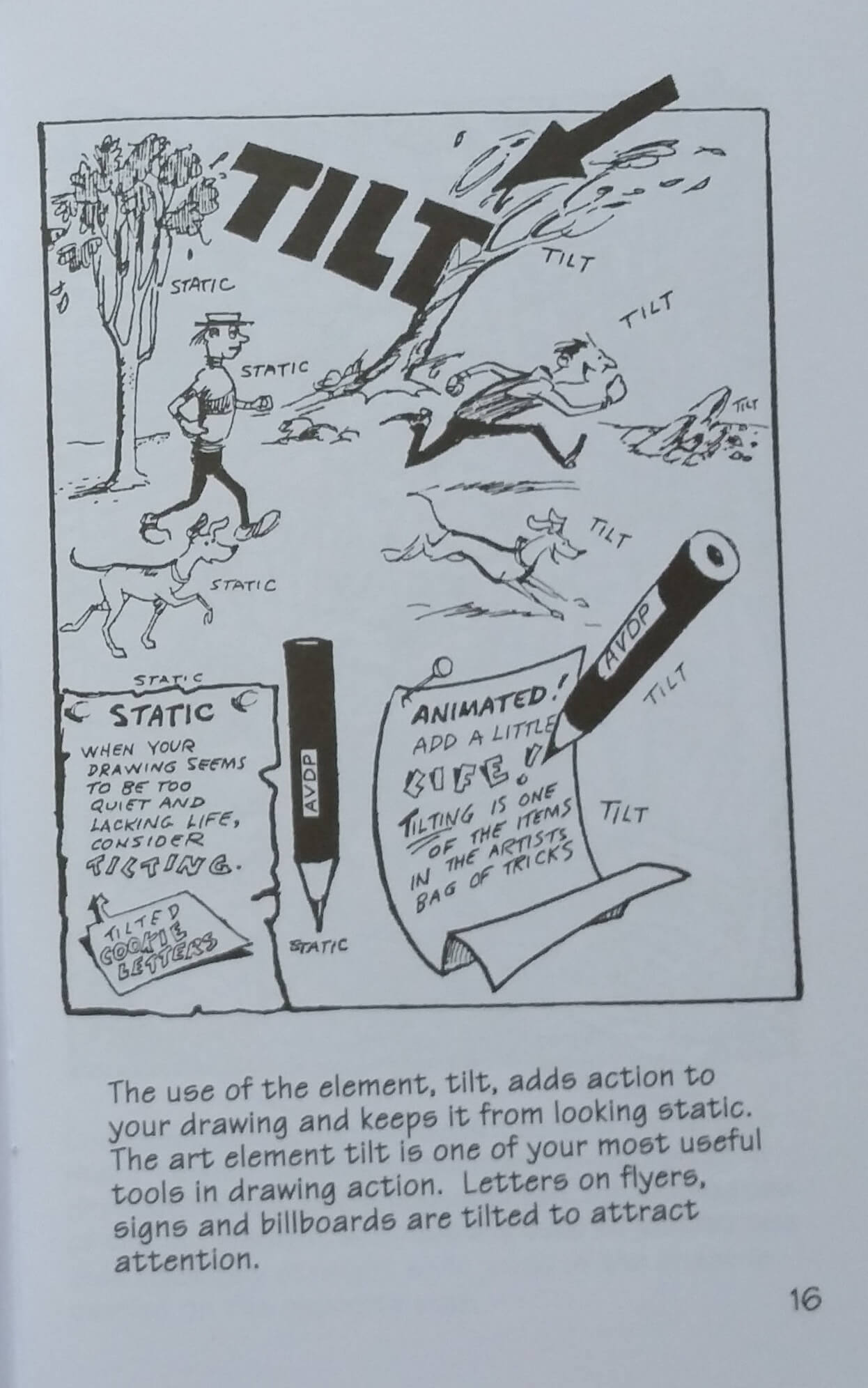
The jack-in-the-box on the back cover is another example of how this book takes students past the skills in The Drawing Textbook. Detail, texture, twist, action are all put into play, while still using the 7 laws of perspective that the program is built on.
You can see in the caterpillar and the flowers in the border that the skills taught in the other two books are also carried over.
Drawing In 3 Dimensions
14 Clubs or Challenges
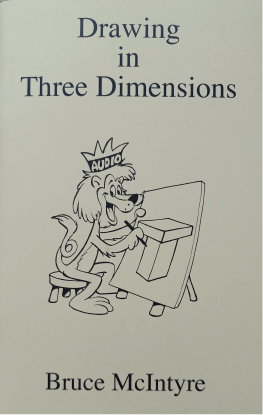
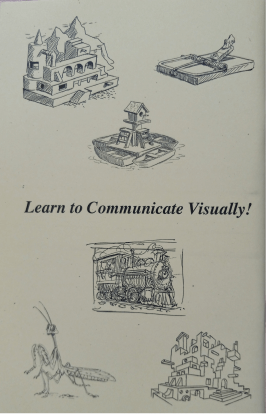
Front & Back Covers of Drawing In Three Dimensions
$15.25
It is more a series of clubs (I call them "challenges") for the budding artist. Since the program was originally taught in classrooms, the clubs were utilized instead of grades. As students passed each level, they were "admitted to the club" by posting their work in the appropriate bulletin board.
The individual student or small group can put the same concept into play. When a student passes the "challenge" they know they have mastered a skill and can begin to work on the next skill.
So when to use this book? Like the other three mentioned above it builds on the skills taught in The Drawing Textbook so it could be used immediately after it. But the skills taught in the middle are introduced in Elements of Art.
I spread the 14 "clubs" throughout the 110 lessons above. Approximately every 8 lessons or every two to three weeks introduce the next club. The have several weeks to practice the skill before taking the challenge.
Bruce McIntyre obviously named his clubs after former students whose examples are displayed at the front and back of the book. It is fun to think of who these former students were and how they got the honor of having clubs named after them. (Hint: most of them are probably grand-parents now. Would be interesting to know if any of them continued into the art profession.)
The 12 clubs and their modified (by me) names are:
- Termite Club: Foreshortened Squares in 30 seconds
McIntyre ends this book with several more lessons. The first is "The Purpose of Art." He shows how the various elements are combined to produce visually pleasing art. Below is an example of how the basic skills taught in The Drawing Textbook have advanced from objects being recognizable to becoming artistic.

- Art As Distribution
- Caricature
- Value of Sketching
- Sketching people (Part of the sketching lesson above)
- Facial Expressions
- Arm and Hand Pointers
Buy The Set of McIntyre Books
These are soft-cover booklets that will be mailed to your home.

$57.99
This includes Cute Animals, Flowers and Trees, Art Elements, Drawing in Three Dimensions
Best Book on Drawing People
Back in Print! Mcintyre's Best Book on Drawing People
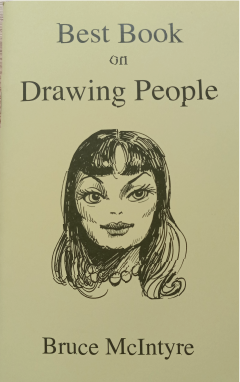
Check link for description and price.

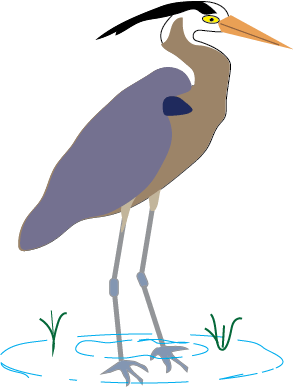
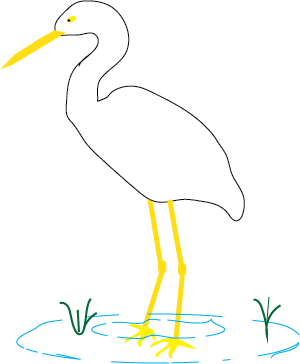
About Our Site
Hands-On Learning

